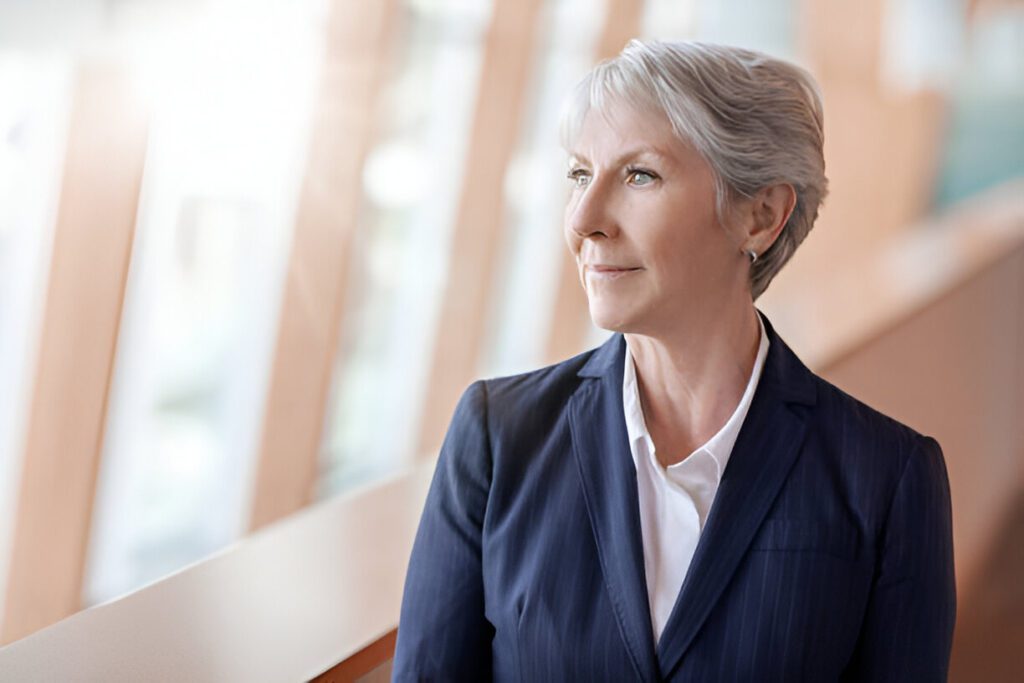In this article you will find top secrets about the Chief Education Officer, and every other vital information you need to know about the officer. So ensure to read the article to the end. Also, feel free to skip ahead using the table of contents.
The Chief Education Officer of Germany plays a critical role in shaping the nation’s education policies and overseeing key aspects of educational reform.
This article provides an in-depth analysis of the position, exploring the officer’s responsibilities, influence on policy-making, and the challenges they face in a complex, federal education system.
Role and Responsibilities of the Chief Education Officer
Overview of the Position of the Chief Education Officer
The Chief Education Officer (CEO) in Germany holds a central position in the country’s education administration. Although Germany doesn’t have a singular national “Chief Education Officer” in the same way as some other countries, this term is often used to refer to the leadership roles within the Standing Conference of the Ministers of Education and Cultural Affairs (Kultusministerkonferenz, KMK).
This body represents the state ministers who oversee education at the regional level, as Germany’s education system is largely decentralized. The KMK coordinates education policy across Germany’s 16 federal states (Länder) to ensure nationwide standards and cooperation.
Key Functions and Duties of the Chief Education Officer
The Chief Education Officer’s primary function is to facilitate collaboration among the various state ministries of education, ensuring the alignment of educational policies, curricula, and reforms across the country.
The officer also plays a pivotal role in policy development, addressing educational standards, teacher training, and the modernization of the school system. Additionally, they represent Germany in international education discussions, contributing to global educational strategies.
Decision-Making Authority in the German Education System
Due to the federal nature of Germany’s governance, the Chief Education Officer works in a consultative capacity with the federal states rather than exercising unilateral control. Key decisions about school curricula, academic standards, and university regulations are often made collectively by the KMK, with input from the federal government when necessary.
The Structure of Education Governance in Germany
Federal and State Responsibilities in Education
In Germany, education is primarily the responsibility of the federal states, each of which has its own Ministry of Education. These ministries oversee local school systems, teacher recruitment, and curriculum development.
The federal government has limited jurisdiction but plays a supporting role in areas like vocational training, higher education funding, and international representation.
How the Chief Education Officer Collaborates with State Ministers of Education
The CEO facilitates cooperation among state education ministers through the KMK. This collaboration is crucial in maintaining unified educational standards while allowing states to address their unique challenges.
The officer ensures that nationwide issues such as school-leaving qualifications (Abitur) and teacher certification are handled uniformly across the states.
The Role of the Conference of Ministers of Education (KMK)
The KMK is a critical institution in German education governance, acting as a coordinating body that bridges the gap between state and federal responsibilities.
The Chief Education Officer works closely with the KMK to negotiate policies on educational standards, digital education, and special education initiatives. Decisions made at KMK meetings guide the education system across all 16 states.
Appointment and Tenure of the Chief Education Officer
Selection Process and Criteria
The Chief Education Officer or KMK president is typically chosen from among the state education ministers on a rotating basis. Each state minister holds the presidency of the KMK for one year, allowing for a diversity of leadership styles and regional perspectives.
The selection process emphasizes experience in education administration and a deep understanding of regional and national education challenges.
Duration of the Term of the Chief Executive Officer
As mentioned, the tenure of the KMK presidency is generally one year, but the role of a state’s Minister of Education is longer-term and depends on political cycles and state elections. These ministers rotate in representing the collective voice of the KMK.
Key Qualifications and Experience Required
The role demands substantial experience in public education administration, typically requiring years of service as a minister of education at the state level.
A background in law, public administration, or educational leadership is also common, ensuring that the CEO is well-versed in both the practical and legal aspects of education policy.
Educational Policies and Reforms Led by the Chief Education Officer
Major Educational Initiatives in Germany
The Chief Education Officer is instrumental in guiding Germany’s major educational initiatives. These include strengthening vocational education, enhancing teacher training programs, and modernizing school curricula to better align with digital innovations and labor market demands.
Programs like the “DigitalPakt Schule” aim to bring more technology into classrooms, addressing the need for digital skills in the modern economy.
Recent Reforms in School Curricula and Vocational Training
Germany’s dual vocational training system, which combines classroom instruction with hands-on work experience, is often praised globally. Recent reforms have focused on expanding access to vocational training and improving integration between academic and vocational tracks.
Curriculum updates in areas like STEM (science, technology, engineering, and math) aim to prepare students for a rapidly changing job market.
Digital Transformation in Education
Digitalization is a key area of focus for the Chief Education Officer, particularly in the wake of the COVID-19 pandemic. The “DigitalPakt Schule” is a landmark policy initiative aimed at improving the digital infrastructure of schools by providing funding for technology, digital learning platforms, and teacher training in digital literacy. These efforts are designed to ensure that all students, regardless of background, have access to quality digital education.
Challenges Faced by the Chief Education Officer
Addressing Regional Educational Disparities
One of the main challenges facing the CEO is the significant disparity in educational outcomes between Germany’s wealthier western states and its less affluent eastern states. Bridging this gap requires tailored policies that address resource allocation, teacher shortages, and infrastructure differences across the country.
Managing the Education Response to Immigration and Integration
Germany has experienced an influx of immigrants and refugees in recent years, particularly from conflict zones in the Middle East and Africa. Integrating these new students into the education system poses unique challenges, including language barriers and cultural differences.
The Chief Education Officer is responsible for ensuring that the education system is inclusive and offers support to migrant students through language courses and special programs.
Coping with the Impact of COVID-19 on Schools and Universities
The COVID-19 pandemic brought significant disruptions to Germany’s education system, forcing schools and universities to quickly adopt online learning models.
The Chief Education Officer played a key role in coordinating the national response, ensuring that schools had the resources they needed to continue educating students remotely and implementing policies for a safe return to in-person learning.
Collaborations and Partnerships of the Chief Education Officer
Working with International Educational Bodies
The Chief Education Officer often collaborates with international bodies like UNESCO, the Organisation for Economic Co-operation and Development (OECD), and the European Union to address global educational challenges and exchange best practices.
These collaborations focus on areas such as improving student mobility, harmonizing education qualifications, and sharing innovations in teaching methods.
Partnerships with the European Union and UNESCO
As a key player in European education, Germany works closely with the European Union on cross-border education initiatives, particularly in higher education and research.
The Chief Education Officer also liaises with UNESCO to promote global education standards and ensure Germany’s alignment with international educational goals like the Sustainable Development Goals (SDGs).
Collaboration with Research Institutes and Universities
German universities and research institutes often work with the CEO to implement policy-driven research that informs educational reforms.
Partnerships with institutions like the Max Planck Institute and the German Institute for International Educational Research (DIPF) help improve policy design and effectiveness.
Influence of the Chief Education Officer on Global Education
Germany’s Role in International Educational Rankings
Germany consistently ranks high in global education rankings, including the Programme for International Student Assessment (PISA) tests conducted by the OECD.
The Chief Education Officer plays a role in shaping policies that influence Germany’s international standing, focusing on areas like student performance, teacher quality, and educational access.
Contributions to Global Education Conferences
The Chief Education Officer often represents Germany at international education conferences, where they contribute to discussions on global education strategies. Germany’s contributions are particularly influential in vocational training, educational equality, and digital education.
Exchange Programs and Educational Diplomacy
Germany has a long-standing tradition of student exchange programs, such as Erasmus, which promote academic mobility between European countries. The CEO oversees initiatives that expand these exchange opportunities, strengthening Germany’s role in educational diplomacy and promoting cross-cultural learning.
Public Perception and Criticisms of the Chief Education Officer
Public Opinion on the Chief Education Officer’s Performance
Public opinion on the Chief Education Officer is mixed, largely depending on the success of educational reforms and responses to crises like COVID-19. While the officer’s leadership in advancing digital education has been widely praised, regional disparities and teacher shortages remain areas of concern for many.
Key Criticisms and Controversies
The most significant criticisms often center on the slow pace of education reform and the ongoing challenges related to educational inequality. Critics also point to bureaucratic delays and mismanagement of funds in programs like the “DigitalPakt Schule,” which has struggled with the timely disbursement of resources.
Achievements and Positive Contributions
Despite these criticisms, the Chief Education Officer has made significant strides in modernizing Germany’s education system, particularly in the areas of digital education and vocational training. Germany’s education model remains highly respected worldwide, and the officer’s work in coordinating education across the Länder has been instrumental in maintaining high standards.
Conclusion
The Chief Education Officer of Germany, in collaboration with the KMK, holds a pivotal role in shaping the nation’s education system.
By balancing federal and state interests, advancing educational reforms, and addressing global challenges, the officer ensures that Germany continues to thrive as a leader in education.
Despite facing challenges such as regional disparities and the complexities of integrating immigrant students, the Chief Education Officer’s efforts are integral to maintaining and improving Germany’s educational standards at home and abroad.





